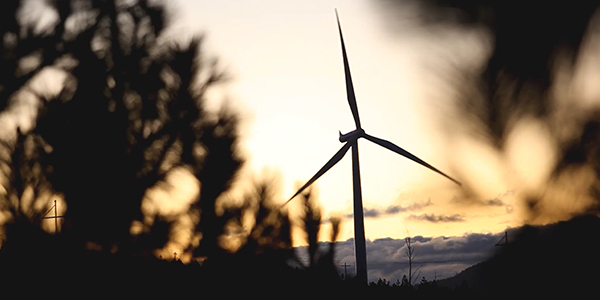The Union of Concerned Scientists (UCS) is making a pitch to Midwestern states in hopes that they pass sweeping clean energy bills in 2021.
A UCS year-end report says progress along the clean energy front was a mixed bag in 2020 in the Midwest, though some scattershot advancements were made
UCS analyst Jessica Collingsworth said while Midwestern utilities made several carbon-cutting commitments in 2020, they’re no substitute for state legislative packages. She advised Midwestern states “to make large commitments to moving clean energy policy in 2021.”
“Unfortunately, none of those states passed a large clean energy policy in 2020. But I think there’s potential in each of these states to do this. To get the social and economic benefits, we need to be bold in 2021 and pass comprehensive clean energy policies,” Collingsworth said in an interview with RTO Insider.
“I think there’s broad public support for the transition and combatting climate change. I think that there’s going to be more and more clean energy from states and at the national level. This isn’t a coastal thing,” she said. “I have a lot of hope for Illinois and Minnesota.”
This year, Minnesota’s Great River Energy announced that it will retire its 1.1 GW Coal Creek Station in North Dakota by 2023 and replace the output with wind power. Collingsworth said Xcel Energy’s pending integrated resource plan before the Minnesota Public Service Commission phases out its coal generation in Minnesota by 2030 while expanding solar resources.
Xcel also said this year that it will operate its coal plants on a seasonal basis until their retirement.
Illinois’ currently pending Clean Energy Jobs Act proposes to achieve a carbon-free power sector by 2030 and reach 100% renewable energy by 2050. Collingsworth predicted the package would pass sometime in 2021.
“There’s a lot of support behind it,” she said.
Collingsworth said Midwestern state legislation may have faltered in 2020 because legislative sessions were cut short by pandemic protocols. She said the legislative bodies may gain momentum as coronavirus transmission retreats.
“It’s a question mark what legislative sessions will look like in 2021,” she said.
Even without a law, Vistra Energy said it will wind down operations at seven coal plants in Illinois and Ohio by 2027, blaming in-part an “irreparably dysfunctional” MISO capacity auction design. (See Vistra Declares End of Midwest Coal Fleet.)
“While that’s welcome news, it’s critical that the Clean Energy Jobs Act passes in 2021 to support a just transition for coal plant workers and coal communities,” Collingsworth said.
Additionally, the Illinois Commerce Commission in December ordered Ameren Illinois to restore full retail net metering for new customers. Ameren announced late in the year that it had attained 5% distributed solar generation, which would have allowed it under state law to discontinue issuing credits for new customers.
Collingsworth praised Michigan Gov. Gretchen Whitmer’s goal to achieve economy-wide decarbonization by 2050 and her formation of the state’s Council on Climate Solutions to help reach the target. Collingsworth also called attention to Wisconsin’s Task Force on Climate Change, which recently advised the state to adopt more than 50 initiatives, including requiring utilities to lower their emissions 60% below 2005 levels by 2030 and 100% by 2050.
She predicted that the grid will look much different in the coming years as more distributed energy enters and climate policies materialize.
“I think it will help to have some strong climate leadership at the federal level, and I think Illinois can be a real leader and show how it’s done and adopt clean energy policy,” Collingsworth said. “Clean energy policies in one state help another state. Our clean energy goals in Illinois will help neighboring states.”





